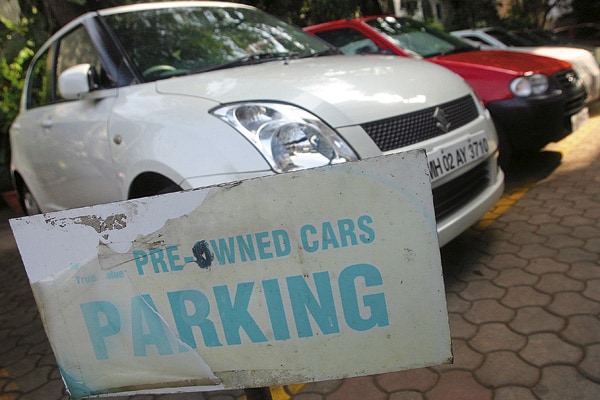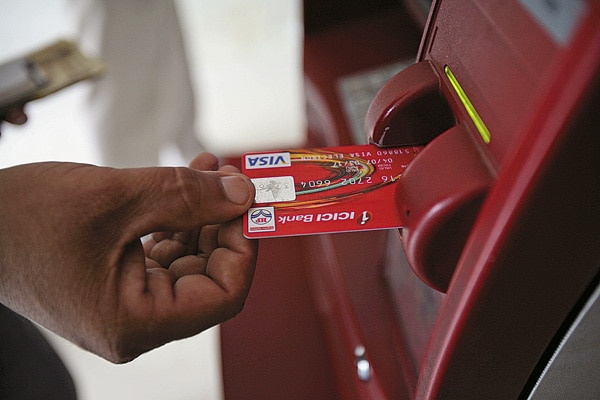
11 Startups To watch In 2012
PubMatic
When Google announced in June this year it was spending $400 million to acquire AdMeld, the ad platform targeted at digital publishers, the picture only got brighter for PubMatic. That’s because PubMatic immediately would become the largest independent publisher-focussed ad platform. Publishers fear that Google would do to them what Apple did to the music industry. 2012 will see PubMatic going in for an IPO and adding market share in supply side ad platforms.
Druva
If you know what Dropbox is, then you’ll have no trouble understanding what Druva is. Just like Dropbox created online file sharing and syncing that ‘just works’, Druva does that to backing up corporate laptops. Its products perform some nifty data deduplication behind the scenes within a company to ensure that only one copy of every file is backed up, regardless of how many different laptops it resides in. By doing this, it claims to save over 90 percent of unnecessary bandwidth and storage use. The 4-year-old company already has over 750 customers across the world and is growing rapidly.
Motorexchange.com

Image: Arko Datta/ Reuters
This two-year-old business acts as a purely business-to-business online exchange for used vehicles. Businesses use the site to auction their used, inspected and certified vehicles to hundreds of dealers and buyers instead of just a handful they were used to earlier. Started by Vinay Sanghi, the erstwhile head of Mahindra First Choice, India’s largest used car dealer, Motorexchange aims to nearly double its sales to 100,000 cars per year in 2012.
Mydentist

This chain of specialised dentist clinics started just over a year ago in Mumbai, where it has already scaled to seven clinics. By bringing speed, transparent and affordable pricing and repeatable processes into dentistry, a healthcare segment mostly ignored by most Indians till it’s too late, Mydentist hopes that large volumes at lower margins will create a compelling business. 2012 will see it scaling the number of clinics to around 50 in Mumbai and then expand to Pune and possibly the National Capital Region.
Image: Reuters
Janaadhar
Many real estate developers started ‘affordable’ housing projects during the last two years, mostly as a hedge against a slowdown in their more expensive projects. None seemed to have nailed the combination of cost, location and product as effectively as Bangalore-based Janaadhar, a housing project launched by Ramesh Ramanathan, co-founder, Janalakshmi Financial Services. After searching for the right partners from developers, architects, banks, and a sales force, Ramanathan may have hit upon the right formula to scale his dream of providing housing — not just selling real estate — to the low-to-middle class (monthly income above Rs. 15,000).
Itz Cash

Image:Amit Gupta/ Reuters
For the last four years, prepaid card company Itz Cash has done a stellar job of growing and holding itself back at the same time because a conservative Reserve Bank of India (RBI) didn’t want to allow private players to offer cash cards, in spite of the market reality that such products would be lapped up by tens of millions of Indians. But with the RBI having relaxed its stand, Itz Cash is poised to be one of the leaders in prepaid money cards that can be used for paying a mobile bill or withdrawing money from an ATM. Navin Surya, its managing director expects overall transaction volumes to jump from $1 billion in 2011 to $2.5 billion in 2012.
Cloud Nine

A chain of specialist healthcare clinics focussed on pregnancy, childbirth and pediatrics, Cloud Nine was earlier a single centre Apollo Cradle franchise in Bangalore. It reinvents the childbirth experience by challenging conventional hospital wisdom — allow a large number of visitors, have blue or pink walls instead of cream or white, and create an atmosphere of celebration. This is backed up with detailed process-level innovation to reduce errors. 2012 will see the chain expand the number of clinics as well as focus on related areas like infertility treatments.
Image: Reuters
Waterlife
This interesting company focusses on solving both the access and quality issues faced by rural India around drinking water. It does this by a mix of expensive capital equipment (filtration plants, pipelines, etc.) paid by governments combined with direct-to-consumer products like 20 litre cans priced at Rs. 7. By combining the two, Waterlife is able to create lasting and affordable infrastructure around water for the rural poor.
Letsbuy.com
While everybody talks about Flipkart or Amazon, two-year-old Letsbuy has been doing rip-roaring business. By focussing on the high value (albeit low margin) electronics category, Letsbuy has quietly emerged as one of the top three e-commerce players in the country currently based on revenue. 2012 will see it launching its own delivery team, increasing focus on higher value white goods and on becoming the go-to place for ‘gadgets and stuff.
Zomato.com
Arguably the most comprehensive listing of restaurants across India today, Zomato claims to cover nearly 20,000 restaurants across 10 cities currently. It not only offers reviews but also menu listings, and shortly, the ability to book tables and meals directly without human intervention. It claims to have around 1.5 million monthly visitors to its Web site and over 200,000 users of its various mobile apps. 2012 will see it expanding into events and ticketing as well.
Zovi.com
One of the best signs that e-commerce is here to stay in India, Zovi retails its own range of apparel and accessories purely through its own Web site. It has no third party brands and no physical stores. The savings it makes from being purely online can then be passed on to consumers, while sourcing its own products allows it to respond to consumer trends and preferences faster. Zovi already claims to be doing 700-800 orders per day.
(This story appears in the 30 November, -0001 issue of Forbes India. To visit our Archives, click here.)




